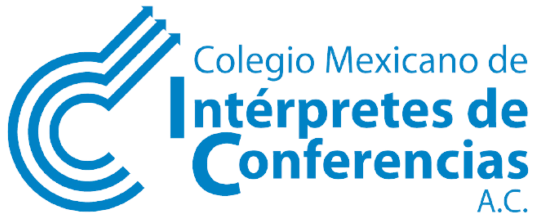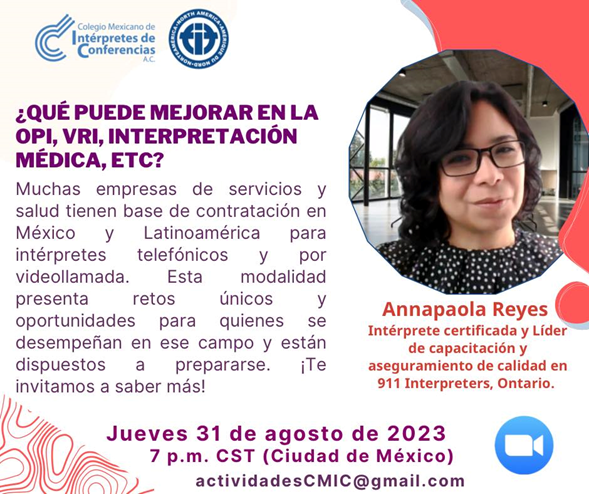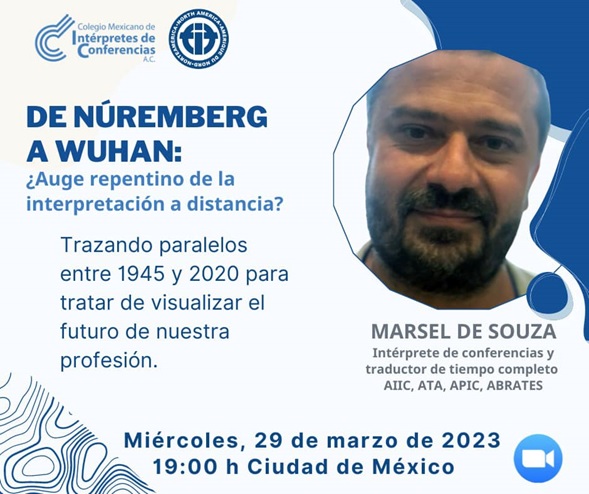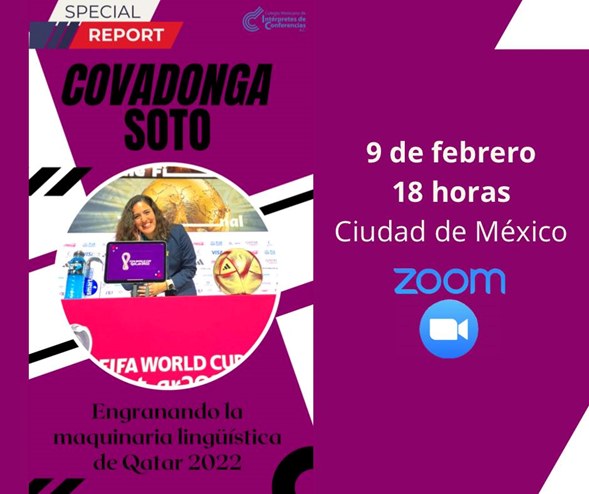Eventos pasados
Beneficios
Pertenecer al Colegio Mexicano de intérpretes más conocida y reconocida a nivel internacionalmente.
Representación: El CMIC es la única asociación que se preocupa por los intereses de intérpretes de idiomas, lengua de señas y lenguas indígenas.
Préstamos. Contamos con un Fondo de Solidaridad para ofrecer préstamos a muy bajo interés a los miembros que se encuentren en situaciones de emergencia.
Seguro de vida mutualista, con primas bajas y un servicio excelente.
Miembro Activo (muy activo) de la FIT (Federación Internacional de Traductores) en su centro regional FIT Norteamérica.
Extensión educativa. Actividad en la que hacemos mucho énfasis. La mayoría de los seminarios y actividades son gratuitos para los miembros.
Reuniones sociales organizadas para para promover la convivencia entre los colegas.
Muy pronto, programa de Certificación en Competencias de Interpretación y un Directorio Digital de Intérpretes.
Encuentra un intérprete
Mensaje del Presidente
En el Colegio Mexicano de Intérpretes de Conferencias, A.C., lo que más nos ha impulsado y mantenido juntos desde 1982 es el hecho de que esta asociación existe por la solidaridad. Los miembros somos, en una profesión que invita a la independencia y la autonomía, muy conscientes de que necesitamos en algún momento unos de otros, que no somos islas, y por mucho, que el gremio siempre responde en auxilio y en son de amistad.
Ser Presidente del Consejo Directivo es siempre un reto, pues la profesión siempre nos presenta necesidades inmediatas que hay que resolver. Por otro lado, los miembros siempre buscan respuestas y ayuda, además de un Colegio que les brinde una gama amplia de servicios y oportunidades de extensión cultural y profesional. Pero lo mejor de formar parte del Consejo Directivo es saber que cada miembro es un ser humano que tiene la capacidad de ayudar, de responder y de apoyar a la profesión.
Es un honor como presidente del Colegio Mexicano de Intérpretes de Conferencia A.C. poder darles la bienvenida a ésta, la Casa del Intérprete de Conferencias. Como Consejo, esperamos poder cumplir sus expectativas, pero como Colegio, estamos seguros de que encontrarán calidez, amistad y solidaridad en todo momento. Bienvenidos.


















